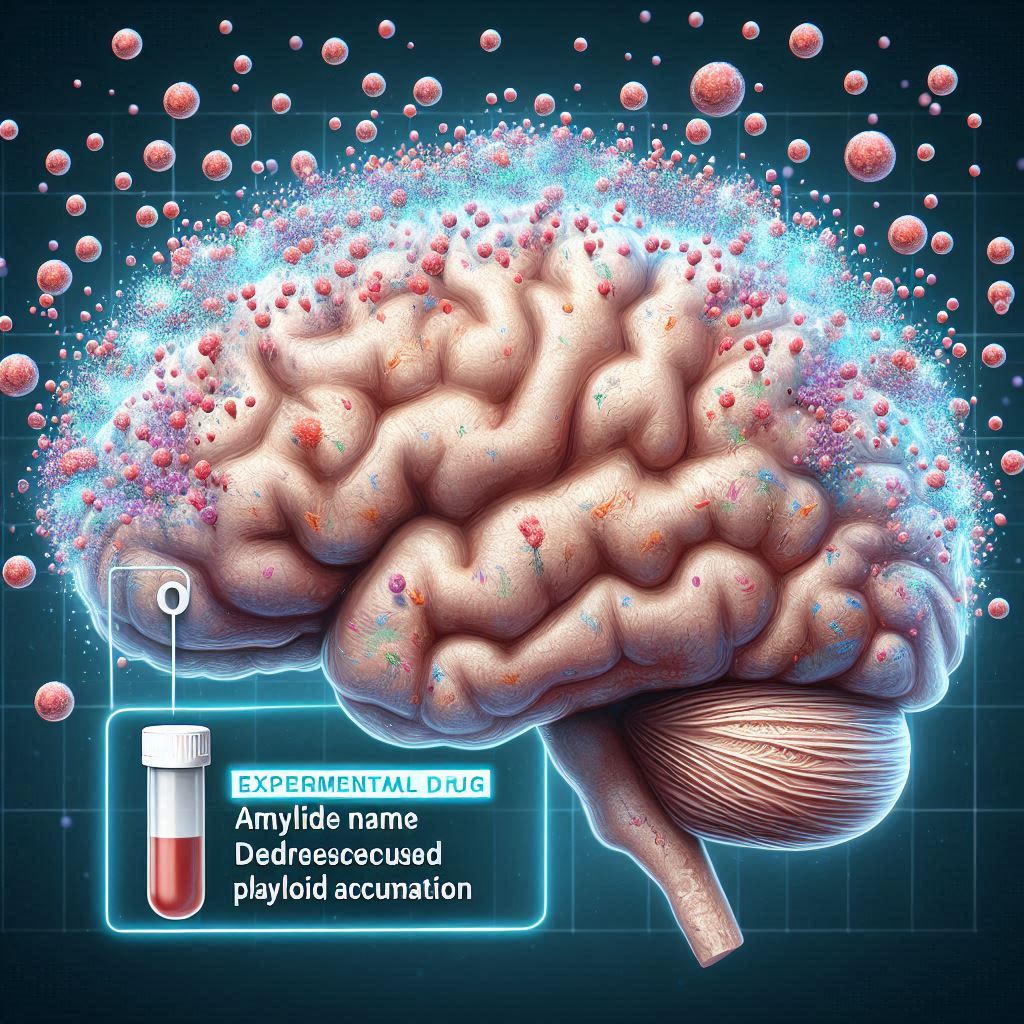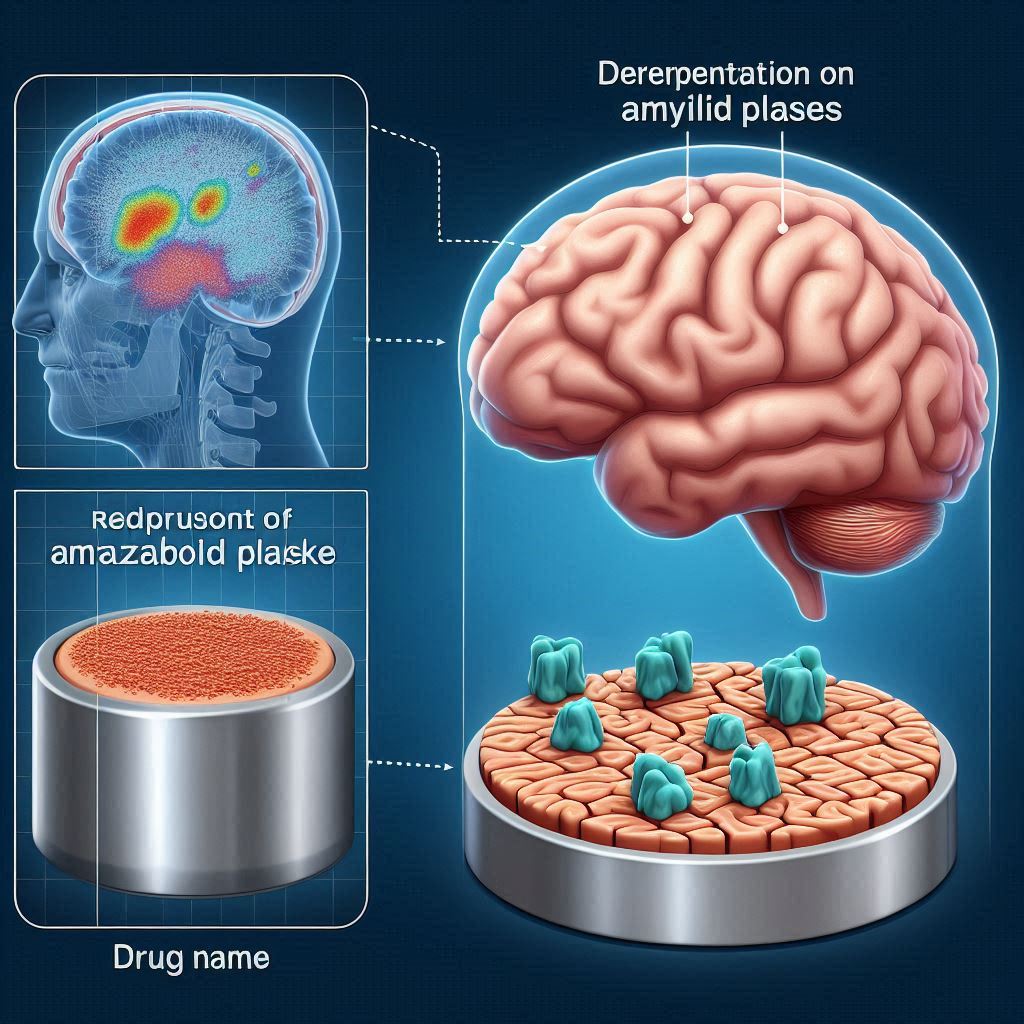– Results from Early-Stage Trials Very Promising
Breaking News: There has been a Promising Breakthrough in Alzheimer’s Research
A medical journal’s contents today are being discussed widely within the medical profession for reporting encouraging findings from an early stage trial on an Alzheimer’s drug, which could be a significant step forward as far as treatments for this highly complex neurodegenerative illness is concerned.
First impressions showed a connection between these reduced levels and better cognitive functions amongst test subjects.
In spite of these hopeful results, he stated that the drug needs to be tested further regarding its safety and efficacy. He said, “This may represent an important stride toward fighting Alzheimer’s; however, we must obtain additional information from bigger and more prolonged tests so as to fully determine the extent this medication can reach.”.
The research administered the medication to a small number of patients over half a year. Other preliminary information included reductions in amyloid plaques and improvements on remembering incidents or performing other cognitive processes. This is when effective cures against Alzheimer’s begins to make sense.
Early trials of a new Alzheimer’s drug, which reduces amyloid plaques, represent potential breakthrough in treatment.

Early trials of a new Alzheimer’s drug that led to reduced levels of amyloid plaques – one of the signs the disease – were reported by researchers. According to them, an experimental drug reduced these types of brain lesions significantly amongst individuals involved in the trial. This finding opens up hope for much better therapies against Alzheimer’s since such reduction is associated with cognitive improvement. However, despite the encouraging results recorded so far, specialists insist not only that more studies should be performed to provide evidences confirming their effectiveness but also to ascertain whether they are safe over long periods of time.
If successful, this may mark an important switch in Alzheimer’s research where no treatments have been available over several decades. If these outcomes can be verified in future trials,it may become one strong medication for slowing or even stopping Alzheimer’s thus generating new expectations for patients and their families.
Early Study Shows Promising Results for Experimental Alzheimer’s Drug: Cognitive Improvements Noted
The study of an early promising experimental drug for Alzheimer’s Disease concludes that improvements appear in cognitive function. The research conducted by scientists… has experimented on patients in phases I and II where subjects were identified to have reduction for amyloid plaques, as well as highly significant memory and mental ability restoration. This information might indicate an entirely new route for dealing with Alzheimer’s disease.
But while these results are encouraging to many researchers still think it’s essential to carry out more clinical tests so as to estimate the drug more accurately. Yet, information thus far has amazed clinicians because this could be another milestone in our quest for efficient drugs against Alzheimer’s disease.
New Alzheimer’s Drug Shows Potential Breakthrough in Early-Stage Trials
An experimental drug for Alzheimer’s disease shows early promise in clinical trials. Initial findings indicate that it may be able to bring down brain amyloid plaque loads by massive amounts, as well as improve cognitive function. According to scientists at Mayo Clinic, this recent study represents probably the biggest breakthrough in the management of Alzheimer’s disease since. This is the first medication of this kind which has succeeded in targeting and diminishing plaque growth while at the same time enhancing thinking abilities.
Nevertheless, even though these are very encouraging initial results, researchers warn that it still requires more research before we can assert the drug’s advantages over an extended period and its safety level. Such results would serve as a potential new treatment for patients suffering from Alzheimer’s disease if confirmed by future related studies.
Discoveries of Alzheimer’s drug made by researchers were hopeful: the reduction of key plaque observed

During the initial phases, scientists have stated that promising results from clinical trials of a new drug for Alzheimer’s disease were reached. Besides reducing one of the hallmark features associated with AD – beta amyloid; those who participated in the experimental treatment exhibited significant improvement in their cognitive functions concomitantly with a decrease in plaque levels, which indicates that this medication may be harnessed as a novel avenue for managing this disease.
Although these findings are indeed encouraging regarding the much-needed development of effective therapies against Alzheimer’s; caution is sounded by researchers who speculate that additional investigations would be necessary to determine not only whether the medication is safe but also its long-term effects apart from their usefulness in enhancing patient’s ability to engage mentally. Amongst all the recent astonishing developments related to dementia, this can probably lead into change psychiatric management of people suffering from Alzheimer’s condition.
According to independent experts; authorship is creative and dubious yet there might emerge new approaches on how patients with AD can be helped kindling especially hope behind research work of this one more time around than there are currently available concern of neurologist specializing in treating such ailments as Alzheimer’s stated during interviews “we simply thought they would keep getting worse until we found something like today”. If subsequent replicable clinical trials confirm what we found today, maybe someone could now learn how one takes care of or inhibits progression of AD’s symptoms at all.
New Innovative Alzheimer’s Treatment Revealing Inception of Encouragement in the Initial Clinical Trials
The results of a promising proof-of-concept study show that an innovative new treatment for Alzheimer’s has yielded some very promising early results in clinical trials. The new experimental drug reduced amyloid plaques, one of the major hallmarks for Alzheimer’s disease, and improved cognitive function among participants. Conducted by researchers at this institution/university, this study showcases how this drug may pave the way for a different direction in treating Alzheimer’s diseases.

Experts point out that preliminary results must be confirmed in future trials to determine if a drug remains safe and effective over time. If further research confirms these, then it will definitely make it one of those topmost medical breakthroughs against AD crippling disorder which gives new hopes to millions suffering from it along with their families.
Researchers have discovered that an experimental herbal medicine significantly reduces amyloid plaques and enhances cognitive function in early Alzheimer’s patients. This promising Alzheimer’s drug could potentially revolutionize treatment approaches, though further clinical trials are essential to confirm its effectiveness and safety.
A new herbal medicine shows potential in treating Alzheimer’s by targeting amyloid plaques and improving cognitive function in early-stage patients. This Alzheimer’s drug could offer a breakthrough in managing the disease, but additional clinical trials are needed to validate its long-term benefits and safety.



